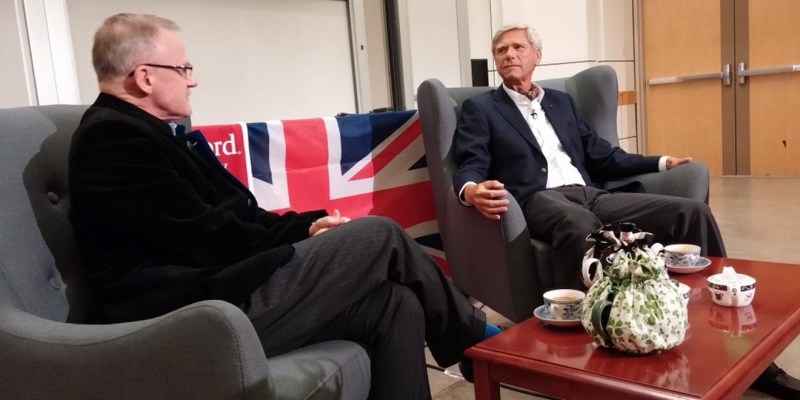For the past eight years Burton Lee M.S. ’96 Ph.D. ’02, a lecturer in the mechanical engineering department, has been bringing stories of European entrepreneurship to Stanford students seeped in Silicon Valley culture through his course ME 421: European Entrepreneurship and Innovation Thought Leaders Seminar.
Lee has spent 25 years in Silicon Valley and he finds that it does not always feature the broadest perspective.
“Here in the Valley we are very Valley-centric, we think everything is about the Valley,” he said. “Well most things are not about the Valley around the world.”
His class brings guest speakers from all over Europe to talk directly to the students. As part of preparing for the class, he spends considerable time traveling within the continent.
“I can’t do Europe from Silicon Valley,” Lee said.
It was on one of these trips to Europe that Lee met one of his future guest speakers, an investor named Hermann Hauser, at a conference.
“I’ve been aware of Hermann Hauser for many years. He is a big figure on the U.K. entrepreneurship and venture capital scene,” Lee said. “Part of what is unique about Herman is that he is a scientist, an entrepreneur, and a VC. His venture fund, Amadeus Capital, has been one of the leaders in VC in the U.K. for many years.”
Lee dedicated an entire class session (usually divided between two speakers) to Hauser and the United Kingdom due to the importance of the Cambridge Cluster, also known as Silicon Fen.
“Cambridge is the closest analog to Silicon Valley there is in Europe today, so it’s important to understand how the Cambridge Cluster arose,” Lee said. “The lessons from Cambridge are far more relevant, in some ways, to the rest of Europe than Silicon Valley because it’s much closer to the European model.”
Hauser has been heavily involved with the entrepreneurship scene at Cambridge, and he was encouraged by the student response here at Stanford.
“The main thing that I took away [from the interactions with the students] was the willingness to look outside the U.S., especially to Europe for high technology, so that was really the first impression that I had,” Hauser said.
This willingness to look outside the U.S. is exactly what Lee hopes to encourage with his class.
“If you want to understand start-up and innovation systems around the world – meaning Latin America, Africa, Asia – you have to start with Europe because each of these economies is first and foremost based on the European model,” Lee said. “It’s hard for Americans to go in and understand how things are organized, how it developed historically and why the institutions are the way they are.”
The Cambridge Cluster has a history quite different from Silicon Valley, which Lee views to be essential to understanding European entrepreneurship.
“Cambridge is a university town, and for some time now it’s had a high tech cluster. It actually started with the grandson of Charles Darwin who founded Cambridge Instruments towards the end of the 19th century,” Hauser said. “It really got going in the 1960s with the so-called ‘Cambridge Phenomenon’ – 1,500 companies now that employ 57,000 people and have produced $15 billion companies. For Silicon Valley this is nothing special but for Europe this is unusual.”
In addition to the difference in size, companies in the Cambridge Cluster also face bigger constraints than those starting out in Silicon Valley.
“The constraints that we have are of course, more severe than in Silicon Valley. There is not as much venture capital and the market in Britain is very much smaller than the U.S. So we have go to think about selling our product globally right from the beginning,” Hauser said. “Whereas startups in Silicon Valley have the opportunity of working first on a home market that is very large and then becoming global.”
Despite the constraints, Hauser is hopeful for the future of Silicon Fen.
“It’s expanded very rapidly over the past few decades. My expectation is that it will grow substantially going forward and I’m pleased to say that our [student] entrepreneurship society has now become the largest student society on the campus,” he said.
Through his seminar, Lee hopes that students from all disciplines and background learn about the potential of entrepreneurship beyond Silicon Valley.
“This is something that’s generally missing from Silicon Valley,” Lee said. “It’s this deep understanding of how the rest of the world works.”
Contact Andrea Villa at acvilla ‘at’ stanford.edu
